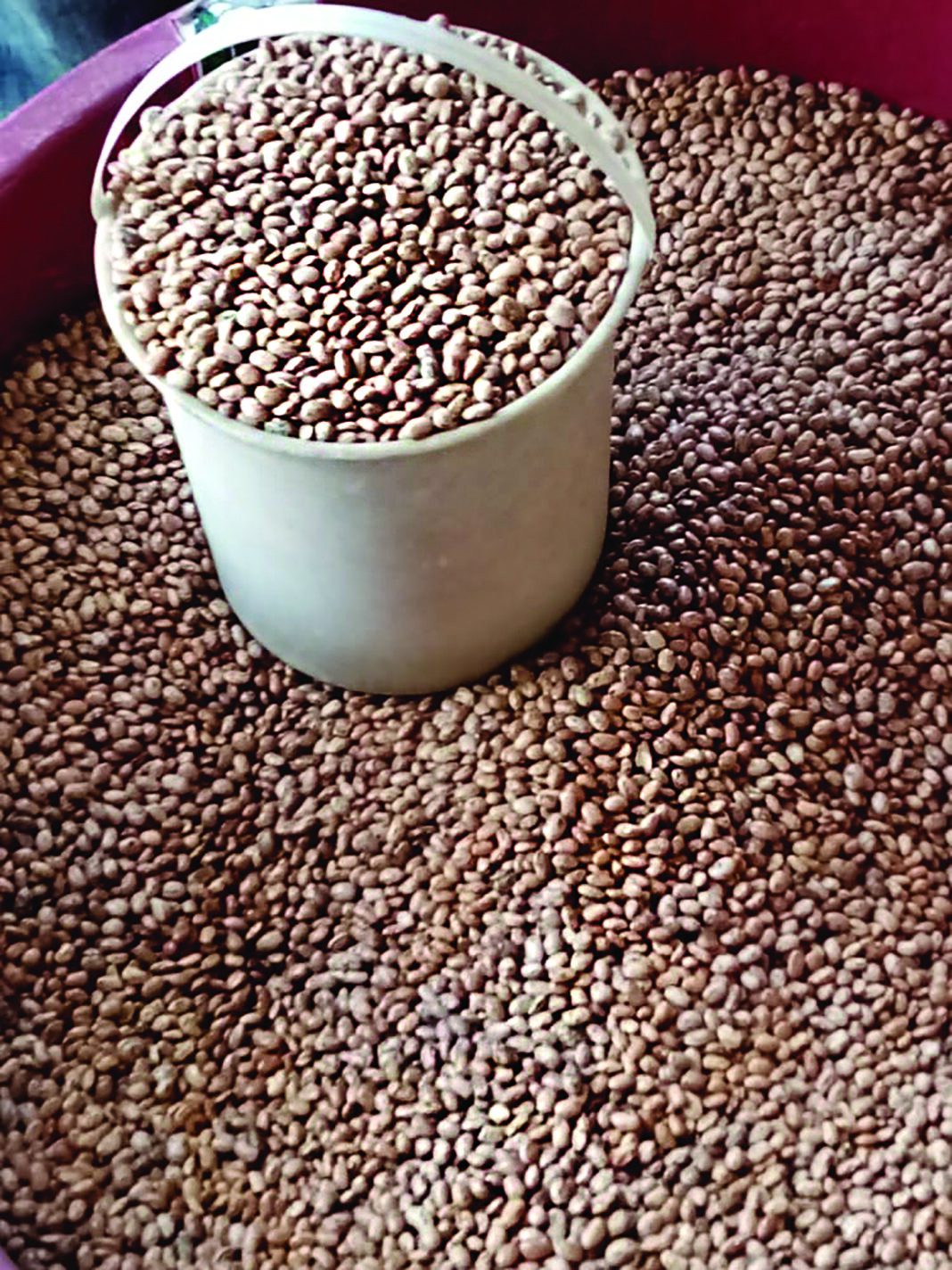Libuseng Molato
Nationwide, there are no beans on the shelves, signalling a crucial period for local farmers to amplify production, particularly in this prime planting season blessed with abundant rain.
Tasty Food Packagers, a leading pulse supplier, has encountered a significant shortfall in local bean supply.
Last year, they told Seahlolo they received a mere 22 tonnes from local farmers, starkly inadequate against their 1700-tonne annually demand.
The company started with local farmers under the 2023 Contract Farming initiative, spearheaded by the Food and Agriculture Organisation of the United Nations (FAO), aiming to bridge the gap between farmers and markets.
“The situation was dire, necessitating bean imports primarily from South Africa, who also struggled with heavy rain impacts,” Matseleng Keele from Tasty shared with Seahlolo.
She expressed their commitment to providing a market for local farmers but lamented the inadequate local production.
“We have given them (local farmers) a good market, all we need is maximised production. We only received 22 tonnes from Lesotho farmers, and now we have run out of beans. Not even South Africa can supply us anymore,” she said.
Local farmers, like Libete John Moonyane from Mafeteng, are responding to this call. “Expanding my bean cultivation to four hectares this year, I aim to capitalise on this opportunity,” he shared, moving beyond his traditional one-hectare, non-commercial farming approach.
The shortage extends beyond large suppliers.
Street vendors like Rethabile Shale struggle with the bean shortage, relying on leftover split bean stock.
“All that we were able to purchase were leftover stock of split beans because quality beans were not available,” he said.
Tsebang Lebata of the Department of Crops noted that despite the rain-affected harvest, significant supplies reached the Lesotho Highlands Development Authority (LHDA) and Disaster Management Authority (DMA), suggesting farmers might prefer these higher-paying markets over Tasty.
Mamolapo Lehata of the Leribe District Disaster Management highlighted the shortfall in beans collected in Leribe, attributing it to the low yield from the 2022/2023 rainy season.
Lereko Masupha, Chief Agricultural Information Officer, confirmed the dip in bean production.
“While lacking precise storage data, we’re working towards better facilities and support for large-scale farmers through entities like the Lesotho National Development Corporation,” he stated.
Agricultural economist Khotso Lefatsa underscored the wider economic implications of this shortage.
“A decline in bean production resonates through the entire supply chain, affecting nutrition since beans are a vital protein source,” he remarked.
He advocates for enhanced local production and faster-maturing seed varieties to adapt to climate changes.
Agricultural consultant Liteboho Pitseng warned of potential future shortages, advising prompt planting due to changing seasonal patterns.
Pitseng encapsulated the situation, “Farming is not merely an economic activity; it’s a way of life that offers manifold returns. It’s high time we redouble our agricultural efforts.”
Lesotho, heavily reliant on imports for 70% of its food needs, faces a critical juncture to boost its domestic agricultural output.




